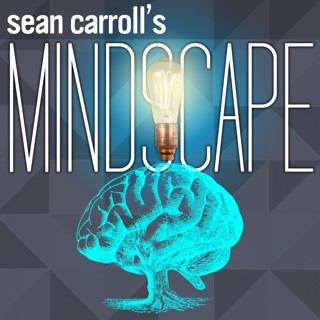
209 | Brad DeLong on Why the 20th Century Fell Short of Utopia
People throughout history have imagined ideal societies of various sorts. As the twentieth century dawned, advances in manufacturing and communication arguably brought the idea of utopia within our practical reach, at least as far as economic necessities are concerned. But we failed to achieve it, to say the least. Brad DeLong’s new book, Slouching Towards Utopia: An Economic History of the Twentieth Century, investigates why. He compares the competing political and economic systems that dominated the “long 20th century” from 1870 to 2010, and how we managed to create such enormous wealth and still be left with such intractable problems.Support Mindscape on Patreon.J. Bradford DeLong received his Ph.D. in economics from Harvard University. He is currently a professor of economics at the University of California, Berkeley. and chief economist at the Blum Center for Developing Economies. He previously served as deputy assistant secretary of the U.S. Treasury for Economic Policy from 1993 to 1995. He has been a long-running blogger, now moved to Substack. He is a co-editor of The Economists’ Voice.Web siteBerkeley web pageSubstack/blogGoogle Scholar publicationsPodcast (with Noah Smith)WikipediaTwitterSee Privacy Policy at https://art19.com/privacy and California Privacy Notice at https://art19.com/privacy#do-not-sell-my-info.
5 Syys 20221h 24min

AMA | September 2022
Welcome to the September 2022 Ask Me Anything episode of Mindscape! These monthly excursions are funded by Patreon supporters (who are also the ones asking the questions). We take questions asked by Patrons, whittle them down to a more manageable number — based primarily on whether I have anything interesting to say about them, not whether the questions themselves are good — and sometimes group them together if they are about a similar topic. Enjoy!Support Mindscape on Patreon.See Privacy Policy at https://art19.com/privacy and California Privacy Notice at https://art19.com/privacy#do-not-sell-my-info.
29 Elo 20223h 30min

208 | Rick Beato on the Theory of Popular Music
There is no human endeavor that does not have a theory of it — a set of ideas about what makes it work and how to do it well. Music is no exception, popular music included — there are reasons why certain keys, chord changes, and rhythmic structures have proven successful over the years. Nobody has done more to help people understand the theoretical underpinnings of popular music than today’s guest, Rick Beato. His YouTube videos dig into how songs work and what makes them great. We talk about music theory and how it contributes to our appreciation of all kinds of music.Support Mindscape on Patreon.Rick Beato obtained a master’s degree in jazz studies from the New England Conservatory of Music. He is currently a producer and owner of Black Dog Sound Studios in Georgia, as well as host of a popular YouTube channel. He has worked as a session musician, songwriter, and lecturer at Berklee College of Music and elsewhere. He is the author of The Beato Book Interactive as well as other music-training tools.Web siteYouTube channelDiscogs pageAllMusic pageWikipediaTwitterSee Privacy Policy at https://art19.com/privacy and California Privacy Notice at https://art19.com/privacy#do-not-sell-my-info.
22 Elo 20221h 11min

207 | William MacAskill on Maximizing Good in the Present and Future
It’s always a little humbling to think about what affects your words and actions might have on other people, not only right now but potentially well into the future. Now take that humble feeling and promote it to all of humanity, and arbitrarily far in time. How do our actions as a society affect all the potential generations to come? William MacAskill is best known as a founder of the Effective Altruism movement, and is now the author of What We Owe the Future. In this new book he makes the case for longtermism: the idea that we should put substantial effort into positively influencing the long-term future. We talk about the pros and cons of that view, including the underlying philosophical presuppositions.Mindscape listeners can get 50% off What We Owe the Future, thanks to a partnership between the Forethought Foundation and Bookshop.org. Just click here and use code MINDSCAPE50 at checkout.Support Mindscape on Patreon.William (Will) MacAskill received his D.Phil. in philosophy from the University of Oxford. He is currently an associate professor of philosophy at Oxford, as well as a research fellow at the Global Priorities Institute, director of the Forefront Foundation for Global Priorities Research, President of the Centre for Effective Altruism, and co-founder of 80,000 hours and Giving What We Can.Web sitePhilPeople profileGoogle Scholar publicationsWikipediaTwitterSee Privacy Policy at https://art19.com/privacy and California Privacy Notice at https://art19.com/privacy#do-not-sell-my-info.
15 Elo 20221h 42min

206 | Simon Conway Morris on Evolution, Convergence, and Theism
Evolution by natural selection is one of the rare scientific theories that resonates within the wider culture as much as it does within science. But as much as people know about evolution, we also find the growth of corresponding myths. Simon Conway Morris is a paleontologist and evolutionary biologist who’s new book is From Extraterrestrials to Animal Minds: Six Myths of Evolution. He is known as a defender of evolutionary convergence and adaptationism — even when there is a mass extinction, he argues, the resulting shake-up simply accelerates the developments evolution would have made anyway. We talk about this, and also about the possible role of God in an evolutionary worldview.Support Mindscape on Patreon.Simon Conway Morris received his Ph.D. in geology from the University of Cambridge. He is currently an emeritus professor of evolutionary paleobiology in the Department of Earth Sciences at Cambridge. Among his awards are the Walcott Medal of the National Academy of Sciences and the Lyell Medal of the Geological Society of London. Cambridge web pageGoogle scholar publicationsWikipediaAmazon author pageSee Privacy Policy at https://art19.com/privacy and California Privacy Notice at https://art19.com/privacy#do-not-sell-my-info.
8 Elo 20221h 16min

AMA | August 2022
Welcome to the August 2022 Ask Me Anything episode of Mindscape! These monthly excursions are funded by Patreon supporters (who are also the ones asking the questions). We take questions asked by Patreons, whittle them down to a more manageable number — based primarily on whether I have anything interesting to say about them, not whether the questions themselves are good — and sometimes group them together if they are about a similar topic. Here is a link to the Mindscape Big Picture Scholarship. Please consider donating!Support Mindscape on Patreon.See Privacy Policy at https://art19.com/privacy and California Privacy Notice at https://art19.com/privacy#do-not-sell-my-info.
1 Elo 20223h 6min

205 | John Quiggin on Interest Rates and the Information Economy
The idea of an “interest rate” might seem mundane and practical, in comparison to our usual topics around here, but there is a profound philosophical idea lurking in the background: if you lend me money now against the promise of me paying you back more in the future, I am relating the different values that a certain sum has to me at different moments in time. Traditionally, the interest rates set by the government have been a major tool for influencing the economy, but in recent decades they have increasingly fallen near zero. John Quiggin relates this change to the shift from manufacturing to an information economy, and we talk about what that means for the public interest in having information be reliable and widely available. And yes, there is a bit about crypto.Support Mindscape on Patreon.John Quiggin received his Ph.D. in economics from the University of New England. He is currently a VC Senior Fellow in Economics at the University of Queensland. He is a Fellow of the Econometric Society and the Academy of the Social Sciences in Australia. Among his books are Zombie Economics: How Dead Ideas Still Walk Among Us and Economics in Two Lessons: Why Markets Work So Well, and Why They Can Fail So Badly.Web siteUniversity of Queensland web pageGoogle Scholar publicationsAmazon author pageWikipediaTwitterSee Privacy Policy at https://art19.com/privacy and California Privacy Notice at https://art19.com/privacy#do-not-sell-my-info.
25 Heinä 20221h 19min

204 | John Asher Johnson on Hunting for Exoplanets
Recent years have seen a revolution in the study of exoplanets, planets that orbit stars other than the Sun (or don’t orbit stars at all). After a few tentative detections in the 1990s, dedicated instruments in the 2000s have now pushed the number of known exoplanets into the thousands, enough to begin to categorize their distribution and properties. Today’s guest is John Asher Johnson, one of the leaders in this field. We talk about the various different ways that exoplanets can be detected, what we know about them know, and what might happen in the future.Support Mindscape on Patreon.John Asher Johnson received his Ph.D. in astrophysics from the University of California, Berkeley. He is currently professor of astronomy at Harvard University. He is the founder and director of the Banneker Institute for summer undergraduate research. Among his awards are the Newton Lacy Pierce Prize from the American Astronomical Society. He is the author of How Do You Find an Exoplanet? Web siteHarvard web pageGoogle Scholar publicationsWikipediaTwitterSee Privacy Policy at https://art19.com/privacy and California Privacy Notice at https://art19.com/privacy#do-not-sell-my-info.
18 Heinä 20221h 15min





















